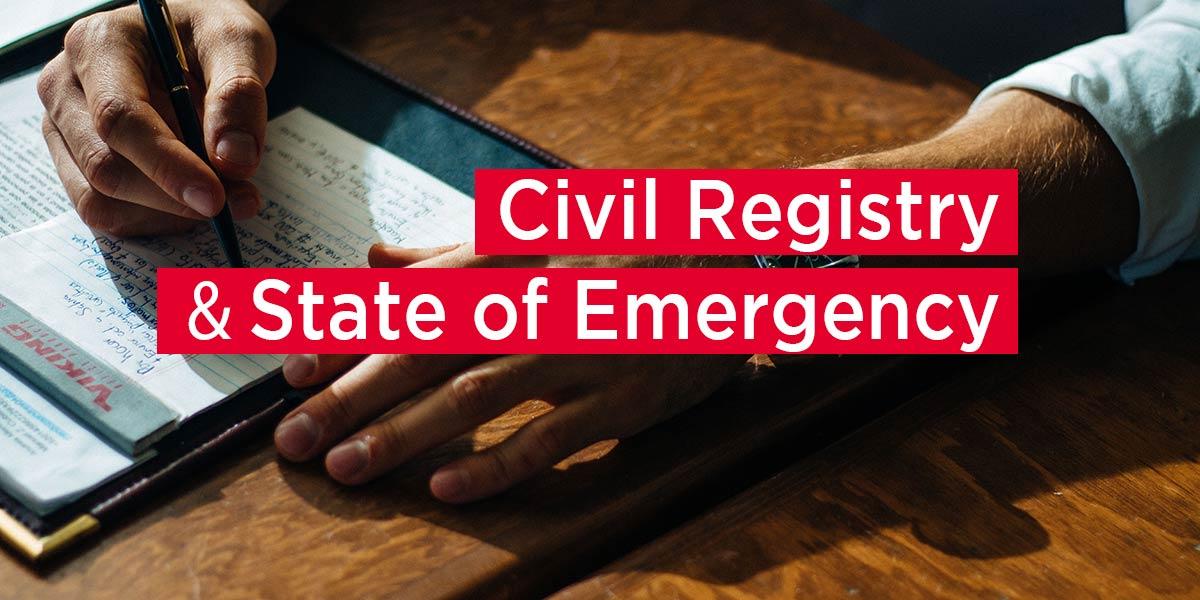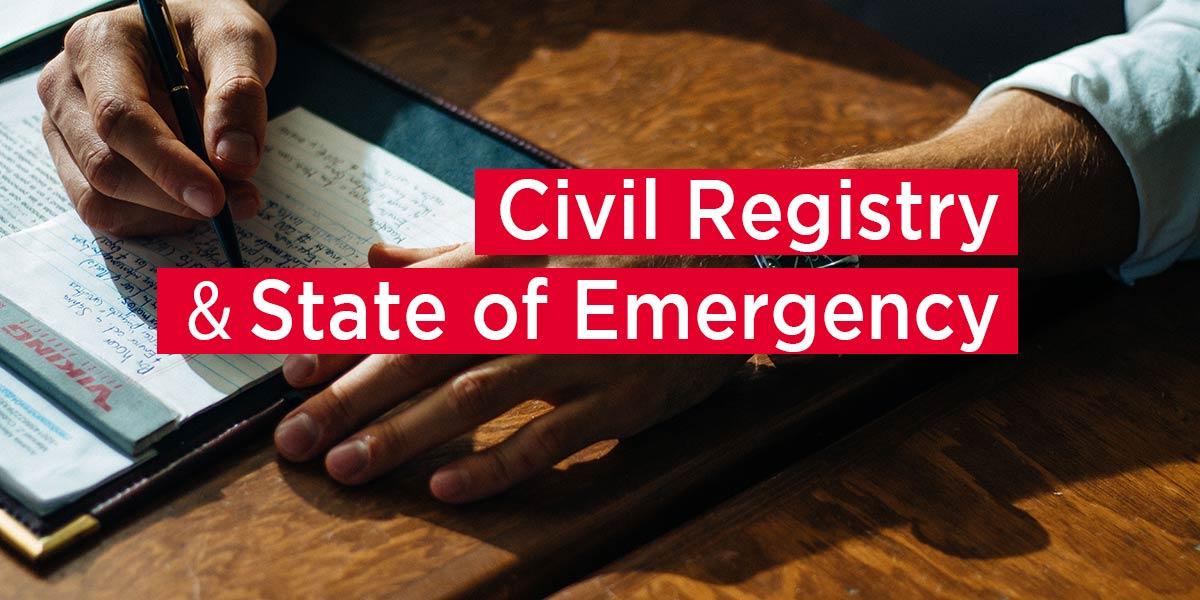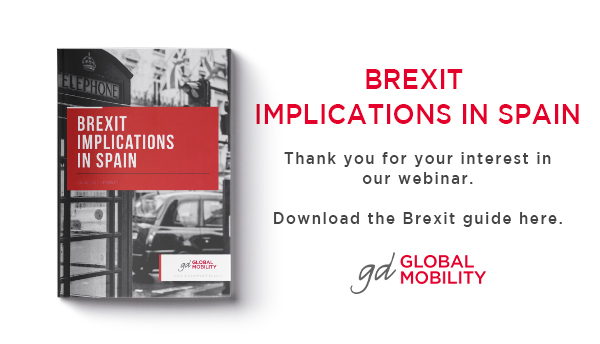
What is the Civil Registry?
The Civil Registry is a public registry that is accountable to the Ministry of Justice in which facts concerning the civil status of people are recorded.
What events are registered?
They can be divided into 10 groups:
- Birth
- Filiation
- Name and surnames and changes of name
- Emancipation and age of majority
- The judicial modifications of the capacity of persons or those that have been declared insolvent, bankrupt or in suspension of payments
- Declarations of absence or death
- Nationality and residence
- Parental legal authority, guardianship
- Marriage
- Death
Why is the Civil Registry so important?
How are the Registries divided and why is there a Central Civil Registry?
Certain events must be registered in the Registry of the place where they occur; for example, births, marriages and deaths. The events for which no other registry is competent are registered in the Central Civil Registry, specifically:
- The birth of Spaniards that occurs abroad
- The birth of foreigners who acquire Spanish nationality
- Birth and adoption that is constituted abroad
- A marriage celebrated abroad between Spaniards or people who subsequently acquire Spanish nationality
- Other events
The Government of Spain decreed the State of Emergency through RD 463/2020, which establishes the suspension and interruption of the processing of the procedures of the Public Administrations. There are some Administrations that continue to provide basic services, such as the Civil Registry.
What events may be registered in the Civil Registry during the State of Emergency?
The Civil Registry will only be open for three situations:
- For the registration of births that have already been scheduled. Births must be registered within ten days. It can be done from the hospital. If it is not done within this period, registration is suspended due to the health crisis.
- For the registration of deaths and issuance of burial licenses.
- For marriages in articulo mortis, that is, if one of the people to be married is in danger of dying.
What happens if you had a prior appointment at the Civil Registry due to take place during the confinement?
This will depend on the procedure that you had planned with the Civil Registry. If, for example, you were given an appointment for swearing an oath of nationality during the weeks of confinement, your appointment will be suspended or cancelled (pending official information). On the other hand, if it is for an inscription or marriage, you can go to the Registry.




